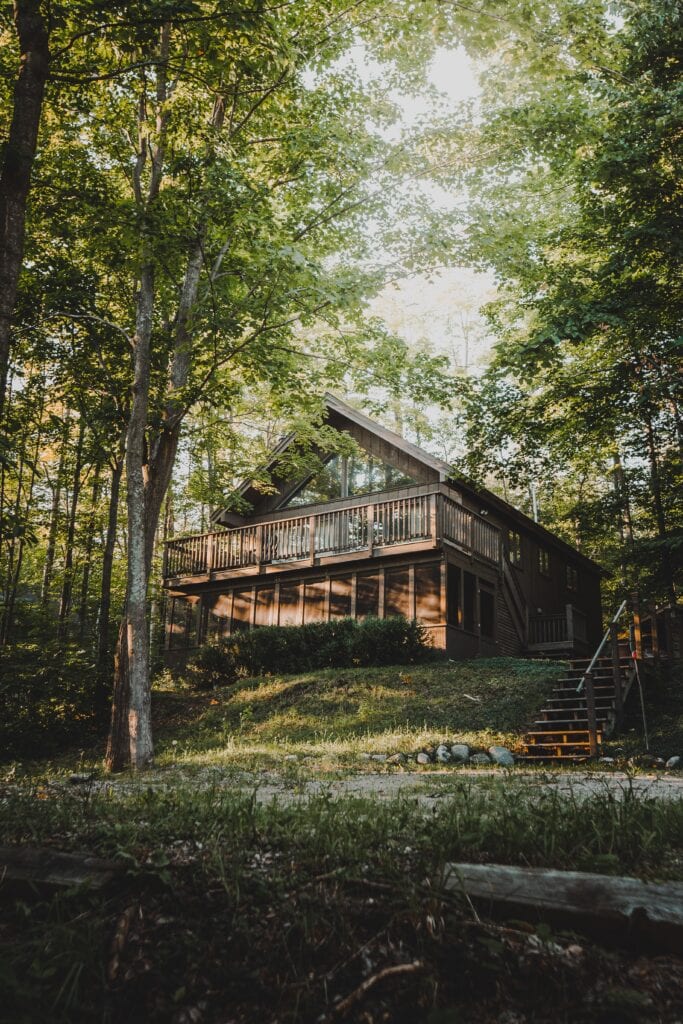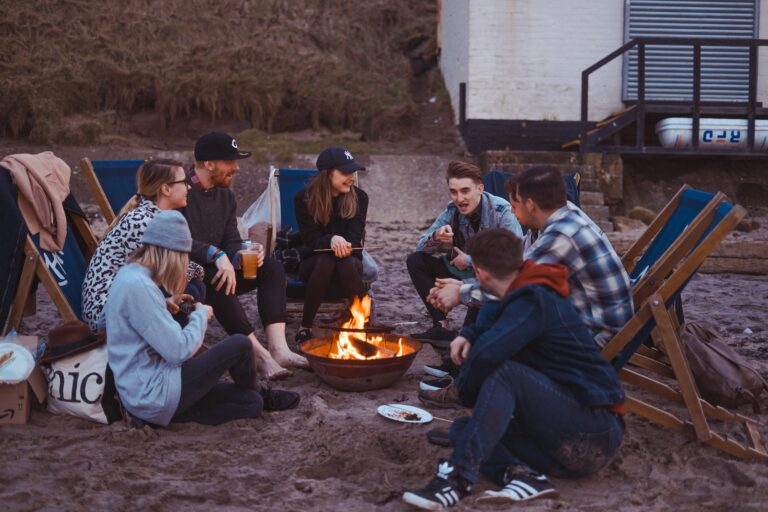Comprehensive Guide to Cottage Ownership
Post Summary: This blog post is all about cottage ownership and the different types of cottage ownership, including shared cottage ownership.

Owning a cottage holds a special place in the hearts of many families. It’s not just about having a vacation property; it’s about creating a haven for generations to come. Whether you’re a long-time owner or a first-time buyer, understanding the complexities and potential problems associated with cottage ownership is essential. In this comprehensive guide, inspired by our own cottage journey we’ll delve into the world of cottage ownership, exploring family dynamics, legal aspects, financial considerations, and expert tips to ensure the seamless transfer of your cottage to the next generation.
We also know that the markets lately, especially in Ontario have been incredibly high. This makes it almost unaffordable to even think about buying a secondary property, let alone a primary residence. But we want to introduce you to shared cottage ownerships, where friends or families can get together to purchase a cottage. Offering the opportunity to live out your cottage life dreams, without worrying about financial burden or stress about purchasing a new home without support.
Keep reading to find out everything you need to know about cottage ownership and the different types of shared cottage ownership.
All about Cottage Ownership
We recently inherited our family cottage from my grandparents, and in the last two years, I have learned a lot about cottage ownership. There’s a lot more to it than just picking up the keys from your family and moving in. So we’re going to cover everything you need to know about cottage ownership. Starting with how to choose the right cottage.
Cottage Culture
Buying a Cottage in Canada
Looking to buy a cottage in Canada? this is your guide to know everything from home inspections, insurance, and what to look for in a cottage or cabin.
Choosing Your Cottage
When it comes to cottage ownership, location matters. Finding the perfect waterfront getaway can make all the difference in your cottage experience. However, you need to consider not only the dream waterfront retreat but also the practical aspects of ownership. Take into account property values, municipal taxes, and utility bills to ensure your cottage is a reasonable price that fits your financial situation.
Cottage Activities
The Best Cottage Lakes in Ontario
There are many cottage lakes in Ontario, but if you’re in the market for a new vacation home, then this list is for you!
5 Forms of Ownership
There are 5 different types of ownership, such as sole ownership, joint tenancy, or fractional ownership. Joint ownership, where two or more individuals share ownership interest, is a common agreement among family members. It allows for shared responsibility and use of the cottage, but it also comes with its own set of potential problems.
Cottage life is all about creating family memories, connection with the great outdoors, and a welcomed retreat from the hustle and bustle of everyday life. But what happens when multiple family members or friends want a piece of that serene paradise? Shared cottage ownership, in its various forms, offers a solution that allows several parties to enjoy the beauty of a vacation property. So let’s go over the different types of shared cottage ownership, and help you find the perfect fit for your needs and lifestyle.
1. Joint Ownership
Joint ownership is perhaps the most common form of shared cottage ownership. In this arrangement, two or more individuals, often family members or close friends, purchase the cottage together. This approach offers the advantage of shared financial responsibility, making it easier to manage the down payment, ongoing maintenance costs, and utility bills. However, it’s essential to have a clear agreement in place to address issues like usage schedules, maintenance responsibilities, and the transfer of ownership interest if one party wants to sell their share.
2. Fractional Ownership
Fractional ownership takes shared cottage ownership to a more structured level. In this arrangement, the cottage is divided into equal or predefined shares, with each owner having a specific timeframe for usage, often on a rotating basis. This approach ensures fairness and minimizes disputes over prime vacation weeks. Fractional ownership can be ideal for larger groups of owners or families who want a well-organized way to enjoy their cottage property.
3. Limited Liability Company (LLC) Ownership
For those looking for a more formal and legally structured approach to shared cottage ownership, forming an LLC can be a viable option. Each member of the LLC owns a percentage of the company, which in turn owns the cottage. This approach can provide better protection and clarity regarding ownership interests and responsibilities. However, it may also come with additional legal fees and administrative tasks, so it’s essential to consider your group’s needs and preferences.
4. Resort Cottage Ownership
Some individuals opt for shared ownership within a resort or community setting, like Chandler Point or other vacation home communities. These developments often offer shared amenities and management services, making it easier to handle maintenance and management. However, this form of ownership may come with annual maintenance fees, so it’s crucial to weigh the benefits against the costs.
5. Cottage Agreements and Legal Considerations
Regardless of the form of shared cottage ownership you choose, it’s vital to have a well-drafted cottage agreement and consult with legal experts to address potential problems and protect everyone’s interests. These agreements can cover usage rules, financial contributions, maintenance responsibilities, and the right of first refusal in case an owner wishes to sell.
So, shared cottage ownership can be a fantastic way to enjoy a vacation property while spreading the costs and responsibilities among multiple parties. To find your perfect fit, consider the dynamics of your group, your budget, and your long-term goals for the cottage. With clear communication and the right legal framework in place, shared cottage ownership can lead to many more years of cherished memories in your cottage paradise.
Cottage Agreements and Family Trusts
We know it’s not the easiest topic but to avoid unhappy surprises, it’s a good idea to have a cottage agreement in place. The document will need to outline the use of the property, maintenance costs, and financial aspects of ownership. Family trusts can also play a significant role in cottage ownership, providing mutual protection for family members and ensuring a smooth transition to the next generation.
Legal Considerations
Consulting a real estate agent and legal experts is often the best way to navigate the complex legal aspects associated with buying vacation homes. Topics like capital gains, property taxes, and insurance premiums need careful consideration especially when it comes to understanding the financial situation. Not to mention, understanding the principal residence exemption, capital gain, and limited liability company structures can provide you with peace of mind when it comes to taxes.
Cottage Succession Planning
Cottage succession is more than just transferring ownership, and we found this out recently, it’s about ensuring the enjoyment of the cottage for future generations. But consider the rights of survivorship and the right of first refusal to protect the interests of all owners. Sample documents and comprehensive checklists can guide you through the process and make it less overwhelming.
Maintainance Fees for Your Cottage
Owning a cottage involves annual maintenance fees, the occasional need for a new roof, septic pumping, a new deck, and so much more. Regular upkeep is crucial to preserve the value of your investment. It might be worth your while to approach a board of directors or a property management service to oversee maintenance and see if you can get help with some of the upkeep. Or like us, we DIY the maintenance and upkeep to keep the overall costs down. But again, that involves a lot of extra time and work.
Family Dynamics and Communication
Cottage ownership often brings together different generations at different stages of life. Open and honest communication among family members is key to avoiding conflicts. It’s important to discuss the use of the cottage, ownership interest, and potential problems upfront. That way you can ensure everyone is on the same page regarding the use of a cottage as a primary residence or a vacation property.
Financial Planning and Rocket Mortgage
Whether you’re looking for a second home, or to completely move to the country, financing your cottage can be a complex topic. Also, consider your financial situation, the down payment needed, and the monthly payments. Another thing to keep in mind is that financial hardship can arise, so our suggestion is to always plan for unexpected expenses.
Want to learn more about cottage ownership? Check out this book by author Douglas Hunter.
The Cottage Ownership Guide: How to Buy, Sell, Rent, Share, Hand Down and Retire your Waterfront Getaway
written by Douglas Hunter
Owning a cottage is a great way to connect with nature, create lasting memories, and leave a legacy for future generations. By understanding the legal, financial, and family dynamics involved, you can navigate this complex journey with confidence. Remember that this comprehensive guide is just the beginning; consulting with experts and using the provided expert tips, sample documents, and common agreements will help ensure a smooth transfer of ownership, granting you the perfect cottage and true solutions for your family’s enjoyment for years to come. Embrace the cottage life and the beauty of mother nature while safeguarding your little place in cottage country.




